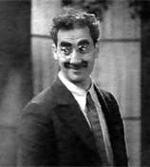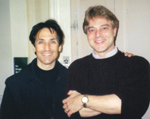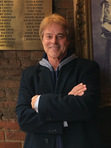Memorizing material: Is comedy like acting?
Hi Dave – Does a comedian write down their monologue and memorize it thoroughly? The more I learn about being a comic, the more it sounds like acting. Is there much of a difference? – JB
Hey JB – Okay, this is gonna tick off some of the actors reading this. Before we continue, let me say that I respect the craft of acting. Make that good acting.
It’s not easy being an actor because you have to learn to express emotions on cue and make it all believable. When you’re in a long running play it involves a lot of repetition – every show. When you’re interacting with other actors you must be on the right spot at the right time and say the correct words to cue a response. The words are in the script, so no arguing about this statement is necessary.
Acting also involves practiced lighting, props, entrances, exits and even bows (curtain call) at the end. Plays, TV shows and movies are directed. Actors do what directors tell them and say what writers tell them to say. And one last thing – the audience is not involved. People in the seats are there to watch. Professionally it’s called a fourth wall on the stage and that’s the invisible wall separating the audience from the actors.

Groucho Marx
As with everything, there are exceptions. Improvisational acting involves more creativity and spontaneity by the actors as they invent dialogue that are sometimes suggested by the audience or based on a loosely structured script, (as in doing a skit). For example, Marx Brothers movies, (I like the classics also), wouldn’t be as funny if Groucho didn’t break through the fourth wall every once in awhile and deliver a few wise-cracks directly to the camera/audience.
I’ve known a lot of great actors who are lousy comedians. Especially the ones who show up for comedy club auditions claiming to be great comics, but can’t buy a laugh once they’re on stage.
They’re acting the role of a comedian, but don’t know the first thing about it.
I guess what I’m really saying is that I think it’s more difficult to be a great comedian than it is an actor. Period. Argue if you want, but that’s my opinion.
Why? It’s because a comedian has to work off an audience, rather than working with another rehearsed actor. Stand-ups deliver material and deal with an audience at the same time. A comedian who just memorizes a monologue and recites it with no regard to audience response is acting. They’re doing a one-person, (acting), show. It may be based on a stand-up routine, but it’s not stand-up comedy.

Robert Dubac with Dave
Again, there are exceptions. Robert Dubac is a great stand-up comedian who does great one-man theatrical (acting) shows. He has a script, but he also works off an audience. If you haven’t checked out The Male Intellect: An Oxymoron, then you’re missing both great comedy and great theater.
Another is the talented English comedian / actor Dave Gorman. His show Googlewhack Adventure had me crying with laughter. But talking about what he and Dubac can do with a script and stand-up comedy experience would fill another article, so I’ll just leave it at that for now.
———————————————————————————–
Sign up to receive Dave’s free weekly newsletter and
receive 15% off the Amazon.com list price!
———————————————————————————–
My point in saying all this it that yes, you can write and memorize a monologue and perform it in a comedy club. Lots of comedians do it. But unlike acting, a comedian has to be prepared to deal with audience response.
An audience is usually unpredictable. They may not laugh when expected and laugh hysterically when it’s not expected. A good stand-up will react also. If the material is not going over as expected, they can switch gears. This means they can pull out different material, work-off (talk) to the audience or change their delivery. It involves having a lot of material, some ability to improvise and on-stage experience. Actors stick to the script and hope the same material works better the next night.
If you memorize your comedy routine word for word, it MUST be conversational. It MUST seem as if you’re making it up on the spot. I gave an example last week about using your personality on stage. The same example holds true here…
Imagine you’re with a group of friends at a party. Everyone’s been telling stories and now it’s your turn to talk. You have a funny story, joke – whatever – that you want to share. How would you deliver it to your friends in a way that will make them laugh?
I’ve seen comedians night after night deliver the same routine word for word. Their gestures and facial expressions are the same every night. Does it work? YEAH – if they’re an experienced comedian because it will look like they’re saying it for the first time at every show.
For example, there is a VERY famous comedian I’ve booked dozens of times. I won’t give his name – but if you’ve ever taken my workshop you know who I’m talking about, (because I tell this story and mention his name!). Every show he delivered the exact same act. It was great, it worked and it took him years to develop his material.
One night during a very late show with a very light audience, another famous comedian stood on stage behind him and mimicked his act exactly. It was like having a shadow. We were all in the back of the club laughing – and so was the headlining “star” comedian on stage. But it didn’t matter because his act was great and each time he did it he made it look as if it was brand new. It was memorized – but the audience had no idea and that’s what counts.
Hang around comedy clubs and you’ll see what I mean. Watch some of the comedians more than a few times and you’ll see they do the same routine for each show. For some it’s completely memorized, but the best ones know not to deliver it that way.
Other comedians will follow a mental outline for their monologue. They deliver the same jokes / stories with the same punch lines, but allow themselves to improvise and work off the audience. It keeps it entertaining for the comedian and they don’t get bored doing the same show over and over.
As always, the most important element is the material. You need to have funny material that makes an audience laugh. When it does – then you keep it in the act until eventually you replace it with better material. It’s a never ending process if you want to be a working comic.
There’s nothing wrong with memorizing your act if it helps you feel more comfortable. The key is to make it seem conversational and like you’re saying these words for the very first time. It’s like going to a different party and telling the same story to a different group of friends. If you did it successfully the first time and want the same reaction at this party, chances are you’ll deliver it in a very similar way. In other words – it’s your act.
———————————–
Dave Schwensen is the author of How To Be A Working Comic: An Insider’s Business Guide To A Career In Stand-Up Comedy, Comedy FAQs And Answers: How The Stand-Up Biz Really Works, and Comedy Workshop: Creating & Writing Comedy Material for Comedians & Humorous Speakers.
For information about these books, comedy workshops at The Cleveland Improv, and private coaching for comedians and speakers in person, by phone or via Skype visit www.TheComedyBook.com
Copyright 2013 – North Shore Publishing







